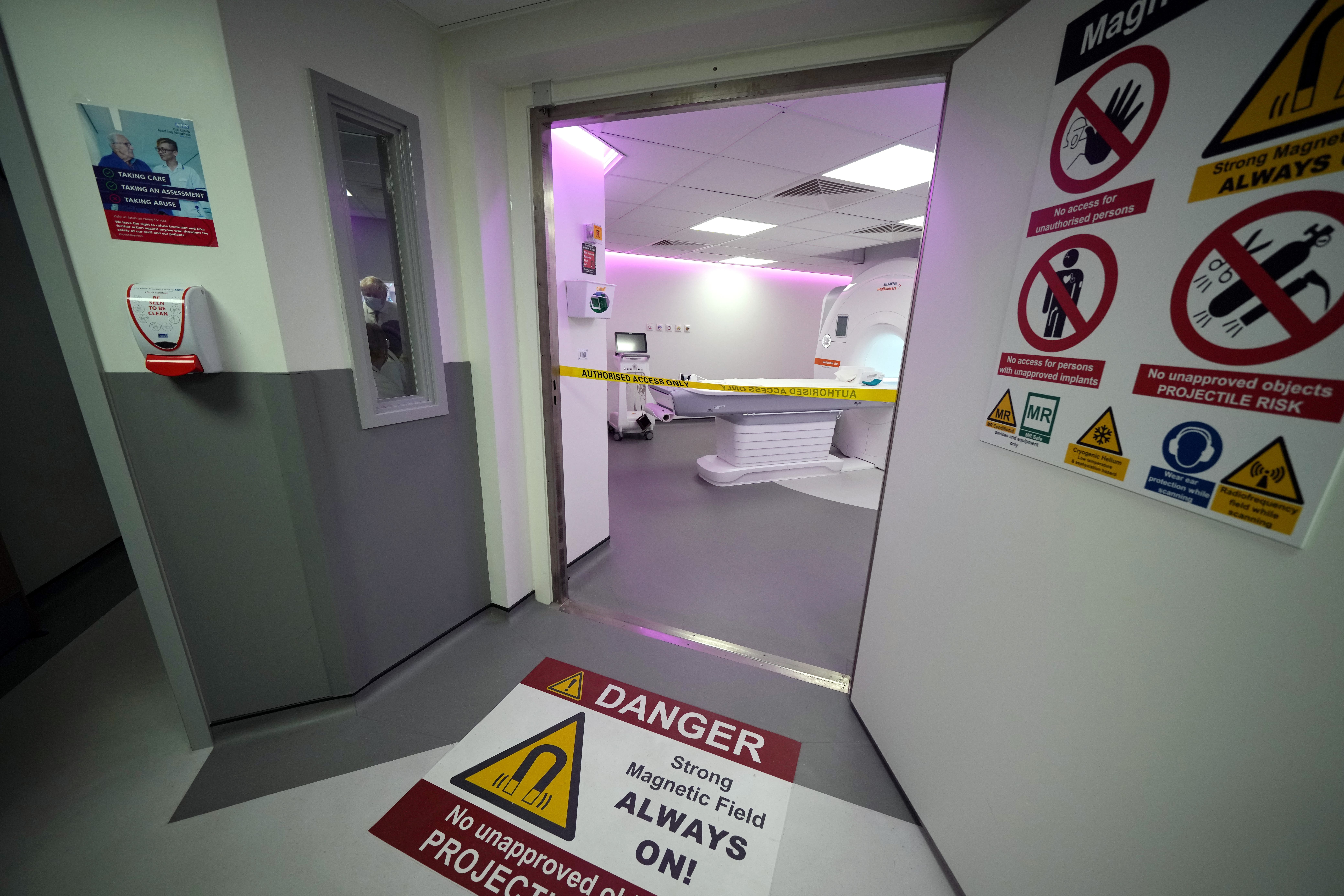New bedside MRI scanning could pick up brain problems in sick babies
Experts in London compared scans taken using a portable MRI scanner with those from traditional MRI machines.

Your support helps us to tell the story
From reproductive rights to climate change to Big Tech, The Independent is on the ground when the story is developing. Whether it's investigating the financials of Elon Musk's pro-Trump PAC or producing our latest documentary, 'The A Word', which shines a light on the American women fighting for reproductive rights, we know how important it is to parse out the facts from the messaging.
At such a critical moment in US history, we need reporters on the ground. Your donation allows us to keep sending journalists to speak to both sides of the story.
The Independent is trusted by Americans across the entire political spectrum. And unlike many other quality news outlets, we choose not to lock Americans out of our reporting and analysis with paywalls. We believe quality journalism should be available to everyone, paid for by those who can afford it.
Your support makes all the difference.Experts have developed a method for using portable MRI scanners to pick up brain problems in babies at the bedside.
A team from the Evelina London Children’s Hospital and King’s College London developed scanning techniques using a weakened magnetic field, instead of the stronger ones needed for traditional MRI machines.
The new way is safe for use on small babies and means portable machines can be used cot-side or in intensive care units.
As a result, very sick babies do not need to be moved around the hospital to have regular MRI scans.
MRI is critical for diagnosing and deciding the best course of treatment for infants with suspected brain abnormalities
For the study, published in the Lancet eClinicalMedicine journal, researchers carried out more than 100 paired scans at the Evelina Newborn Imaging Centre, part of Guy’s and St Thomas’ NHS Foundation Trust.
These compared scans taken using the portable MRI scanner with those on a traditional MRI scanner.
The results showed the new method could accurately detect both normal brain anatomy as well as a wide range of clinically important abnormalities with sufficient detail.
Experts now hope the news can be shared globally to help hospitals in other countries.
Dr Paul Cawley, lead author for the study and consultant neonatologist at Evelina London Children’s Hospital and King’s College London, said: “This study is a much-needed first step in establishing the potential of portable MRI scans for newborn babies.
“MRI is critical for diagnosing and deciding the best course of treatment for infants with suspected brain abnormalities.
“However, over half the world’s population have severely limited or no access to MRI facilities.
“Even within highly resourced healthcare settings, transporting vulnerable infants needing intensive care to radiology departments for their scans can be challenging.
“Portable scanners could democratise access to brain imaging and offer many novel solutions to these challenges.”
We have shown that our portable Hyperfine MRI can visualise brain health and pathology in the baby
This research is part of the Unity Project, which is funded by the Bill and Melinda Gates Foundation.
Steve Williams, professor of neuroimaging at King’s College London and principal investigator for the Unity Project, said: “We have shown that our portable Hyperfine MRI can visualise brain health and pathology in the baby.
“These results will inform our planned studies and new treatments of malnutrition, infection and birth complications across sub-Saharan Africa and South-East Asia.”